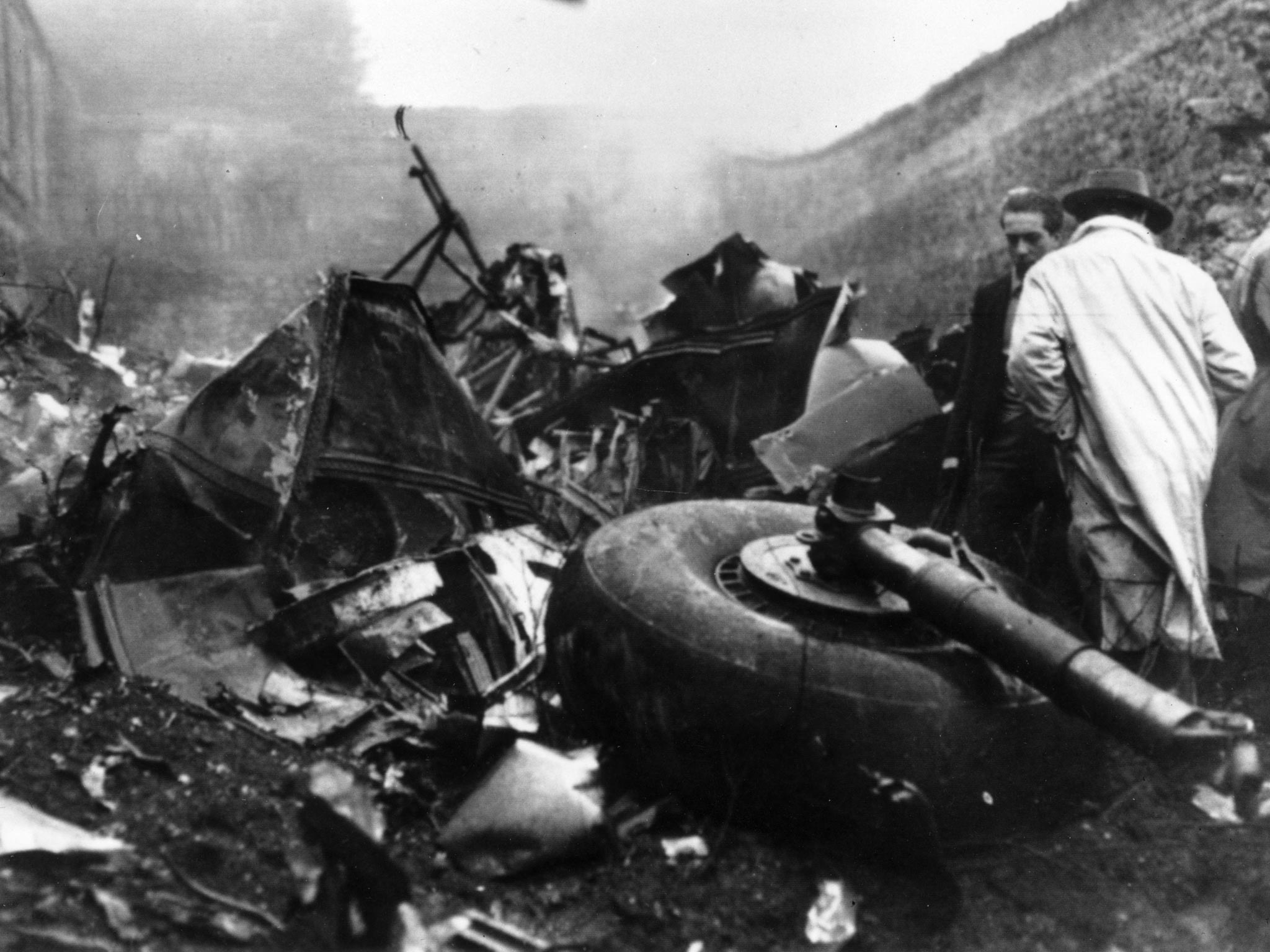The Grande Torino crash: Les Lievesley the mentor cut off in his prime
One of the great post-war teams was destroyed in a plane crash 65 years ago. Dominic Bliss recalls their English inspiration

Every year, on 4 May, hundreds of Torino supporters make the pilgrimage to the top of the Superga hillside, where the gleaming dome of the Royal Basilica of the Savoy overlooks the city. Here they gather to remember one of the greatest club sides in Italian football, the Grande Torino.
The Granata were a symbol of post-war optimism for a broken nation. Their modern, systematic style of play made them champions of Italy five times between 1942 and 1949. But before securing the last of those titles, the team perished when the Fiat G-212 aircraft carrying them home from a friendly in Lisbon crashed into the wall of the basilica.
Among the 31 people who lost their lives was Les Lievesley, an Englishman hired by Torino’s Hungarian manager, Erno Egri Erbstein, as youth-team coach in 1947. The former Manchester United and Crystal Palace player, who had served as a parachute instructor during the war and was involved in dispatching spies behind enemy lines, was hard-edged and intense on the training field.
After a spell in the Netherlands with Heracles Almelo, he jumped at the chance to go to Turin. “He was a pleasant, genial, friendly sort of bloke, but he was not somebody you crossed,” his son Bill recalls. “Underneath his jocularity he was hard as nails, actually, and I know he’d had SAS training.”
His prospects were helped by the fact that the national coach, Vittorio Pozzo, always remained close to goings on at Torino, the club he played for and coached before taking up his post with the Azzurri. In April 1948, Pozzo decided to join Lievesley and the Torino youth team on a trip to England for an international youth tournament at RAF Kenley.
As their return flight came into land in Turin, the brakes failed on the runway and the plane was only halted when one of its wings hit a hangar. Remarkably, everyone escaped serious injury, and once they had recovered from the shock, Pozzo offered Lievesley a role with the national team. He led a young Italy side to the quarter-finals of the 1948 Olympics in London, and promotion to first-team duty at Torino followed that summer.
“He was ready-made to be a coach,” Bill recalled. “I think he was quite strict with the players, but he was very fair with them. He didn’t train them from the sidelines, he used to get stuck in and demonstrate what he wanted to do and play with them. I think that went down very well.”
His father also struck up an unlikely friendship with the exuberant Gianni Agnelli, then a young man enjoying the high life before returning to run the Fiat empire left to him by his late grandfather. Given the family’s relationship with Juventus, Lievesley was soon offered a chance to manage Turin’s other club.
But first the Granata flew back from Lisbon more or less confirmed as champions and were in high spirits as they approached rain-soaked Turin. The pilot’s view was obscured by heavy cloud and the wing clipped the embankment wall of the Superga church. The plane crumpled head first into the hillside.
The monks who emerged from the crypt, discovered the suitcases still miraculously intact among the bodies. They found the blazer belonging to Lievesley, the Englishman who helped to take an already great team to new heights.
Erbstein: The Triumph and Tragedy of Football’s Forgotten Pioneer by Dominic Bliss will be published by Blizzard later this year. Follow him on Twitter @theinsidelefty
Subscribe to Independent Premium to bookmark this article
Want to bookmark your favourite articles and stories to read or reference later? Start your Independent Premium subscription today.

Join our commenting forum
Join thought-provoking conversations, follow other Independent readers and see their replies